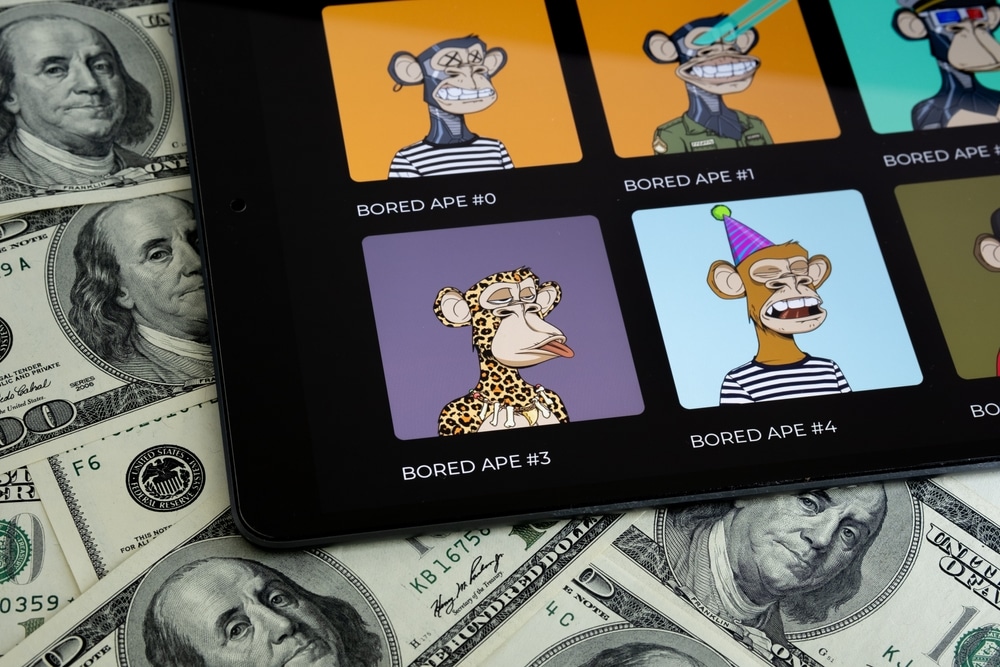As the NFT space continues to grow, more terminologies are emerging. And as an aspiring NFT collector, you need to understand every term to maneuver the NFT market better. In this article, we have explained several colloquialisms used in the NFT space. Continue reading to learn more.
Exploring NFT Glossary
Airdrops
📈🤖 Unlock unparalleled trading potential with GPT Stocks Master AI! Revolutionize your portfolio, leveraging real-time insights and predictive analytics. Don’t miss out – step into a world where precision and profitability meet. Ready to transform your trading journey? Click “Master My Trades” now for your exclusive access! ✨🚀📊
When a project sends a free NFT to your wallet, the transfer is known as an airdrop. To be eligible for airdrops, you have to perform certain tasks, like promoting the NFT project on social media platforms.
Alpha
An Alpha is a group that shares exclusive information regarding NFTs with its members. Such information gives the members a competitive advantage.
Allowlist
Also known as a whitelist, an allowlist contains wallet addresses that have been granted access to mint NFTs before the collection is publicly launched.
AMA
AMA (Ask Me Anything) are live sessions where developers of a particular NFT project interact with community members, allowing them to ask questions.
Ape
When someone says they have “aped” into a particular NFT project, it means they have bought an NFT from that project without conducting thorough research.
BAYC
The most popular NFT collection, “Bored Ape Yacht Club,” has a relatively long title. For this reason, many NFT enthusiasts refer to the collection as BAYC.
Blue Chip
This term refers to expensive NFT projects that many investors expect to be profitable and stable in the long term.
Burn
“Burning,” an NFT, means taking the non-fungible token out of the circulating supply by sending it to a burn address where no one can access it. There are several reasons why collectors burn their NFTs. For instance, they can burn their unique token in exchange for a physical item.
CryptoKitties
CryptoKitties is considered the oldest NFT collection, having been created in 2017. NFT traders talk about CryptoKitties all the time, so it is important you research the project to keep up with their pace.
Curated NFT Marketplace
This title is given to a trading platform that lists NFTs selected by its analysts after undergoing extensive screening. Examples of curated NFT marketplaces include Nifty Gateway and SuperRare.
Degen
Any NFT collector who jumps into purchasing NFTs out of speculation is known as a degen. You have to be a high-risk taker to become a degen.
Diamond Hands
NFT traders who hold their NFTs amid strong selling pressure are said to have “diamond hands.”
Drop
A launch date of a particular NFT project is known as a “drop.”
Ethereum Name Service (ENS)
Ethereum wallets have long and difficult-to-understand addresses, which makes it easy for someone to send an NFT to the wrong address. Ethereum Name Service is here to address this issue. NFT traders use the protocol to change their wallet addresses to easy-to-understand names.
ERC-721
All Ethereum NFTs adhere to the ERC-721 standard, which makes it possible for traders to transfer their unique tokens from one wallet to another.
Flip
This term describes the act of buying an NFT at a low price and selling it for a high price on a secondary market quickly to earn a profit.
Floor Price
This term refers to the lowest price a trader is willing to spend on an NFT in a particular collection.
Fractional NFTs
A fractional NFT can be divided into smaller pieces to allow multiple collectors to invest in it.
Gas Fees
When trading NFTs, network validators will require you to pay some fees in order to complete your transaction. The transaction cost you incur is called a Gas fee.
HODL
This term is used to encourage traders to hold their NFTs regardless of the market conditions.
Liquidity
This refers to the ability to convert your NFTs to cash. If an NFT collection has a low liquidity, you will struggle to cash out your NFT.
Mint
To mint means to convert digital files into NFTs by publishing them on a blockchain’s public ledger.
Mooning
When the value of certain NFT starts skyrocketing, NFT traders call that mooning.

